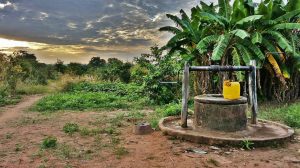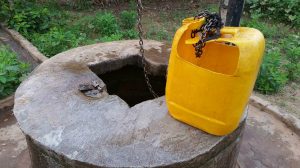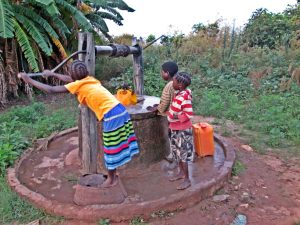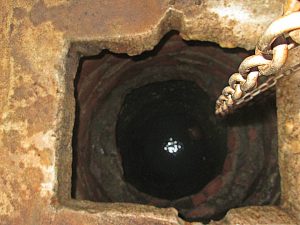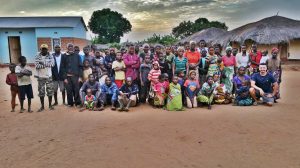This project is made possible through the partnership of WATER CHARITY and the NATIONAL PEACE CORPS ASSOCIATION. ![]()
Location
Chaliwa Village, Lundazi, Eastern Province, Zambia
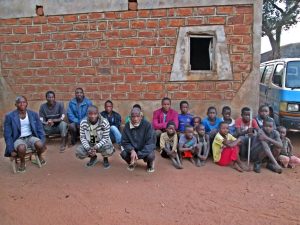 Community Description
Community Description
Chaliwa Village is located in Magodi Chiefdom of Lundazi District in Eastern Province, Zambia. It is currently composed of 116 residents. Lundazi District is inhabited by the Tumbuka tribe. This is a small, distinct group in Zambia that speaks their own language, Chitumbuka. Chitumbuka is spoken worldwide by about 1 million people, a number that is slowly decreasing year to year.
The Tumbukas, and more specifically the Tumbukas found in Chaliwa, are smallholder farmers that grown maize, cotton, sunflower, soybeans, and peanuts for a living. Their diets are heavily maize-based, evidenced by their staple food, nshima. Nshima is ground maize that is boiled till thick and has a consistency resembling mashed potatoes. This is eaten at every meal and is their primary source of calories, as well as income.
Because of their heavy dependence on farming, they also depend on rain. Unfortunately, there are limited natural bodies of water in Lundazi District and this makes farming difficult at times, especially now, since the region is facing a recent drought. The lack of water sources and low rainfalls have made their lives challenging because they are unable to consistently irrigate their farms without either.
That said, despite these challenges, they are as proud, happy, and welcoming a people that you will ever find. They treat visitors as their own and are a joy to live with. Chaliwa is made up mainly of the very large Zimba family, and they are unrivaled in their hospitality.
Problem Addressed
Chaliwa Village has an uncovered, manually-operated well that is contaminated. The well’s water causes illness and is dangerous to consume. There has been a myriad of negative physical effects caused by drinking from this water source, the primary being diarrhea. This is potentially lethal for the young and elderly, and it has caused deaths in Chaliwa in the past.
Furthermore, the well dries up in the summer months, ranging from May to November. Because of these problems, the people must fetch their water over 2-kilometers away by hand at another water source. 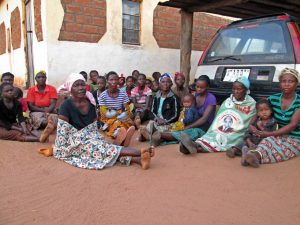 This is often done on foot because only a few residents have working bicycles.
This is often done on foot because only a few residents have working bicycles.
Fetching water by hand is a very arduous task and is done by placing a 20-liter jerrycan on the head and then simultaneously balancing and walking it back home. This technique is commonly used and causes a remarkable amount of strain to the neck and back. This is done multiple times a day, daily.
Imagine for a moment, every time you wanted to take a shower or wash dishes you had to walk a mile-and-a-half, crank a borehole for 10 minutes, and then proceed to carry a 44-pound jug on your neck the same distance back home.
The lack of access to readily-available, clean water contributes to school and work absenteeism. The time that could be spent working or learning is often used fetching water. Not only does time contribute to absenteeism but also illness caused by the contaminated well. This absenteeism has far-reaching economic effects. Not being able to fully devote one’s self to studying or work limits the quality of the education attained and the quality of the work done. Absenteeism leads to poor crop yields, poor class attendance, and poor studying habits.
Project Description
This project is to construct a covered borehole in an easily accessible location within the community.
Water Charity funds will pay for the drilling of the borehole and the purchase and installation of a Mono Pump. The work will be done by a local company, STE Drilling, based in Chipata, Zambia.
The Mono Pump is an India Mark 2 Hand Pump, which is the best-selling hand pump in the world. The borehole will be drilled to a depth of 50 meters, ensuring that the water pumped will be in plentiful amounts and uncontaminated.
Surrounding the borehole will be a drainage basin made of cement, stone, and sand. The raw materials and labor will be provided by community members.
Th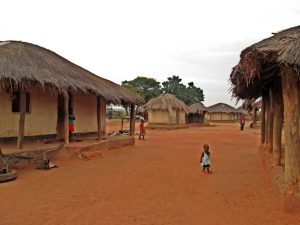 e project was initially proposed by Chaliwa community members. Chaliwa’s Headman (the community leader, Tundu Zimba) will work with the PCV to oversee the project.
e project was initially proposed by Chaliwa community members. Chaliwa’s Headman (the community leader, Tundu Zimba) will work with the PCV to oversee the project.
Project Impact
216 people will benefit from the project, including 116 in the immediate community and over 100 in 3 nearby villages.
Peace Corps Volunteer Directing Project
Zachary Howarth
Monitoring and Maintenance
The people who reside in Chaliwa Village, who are project benefactors and owners, will have the sole responsibility for maintaining borehole. Mono Pump maintenance and repair training will be given to members of the community. This will ensure that problems will be identified and quickly repaired.
A borehole maintenance account will provide funds for any repairs that are needed in the future. This will be organized by the Headman, with mandatory contributions coming from community members.
Comments
This project will enable Chaliwa residents to build capacity in a number of ways. Most apparent will be the improvement of hygiene and health. Clean water will mitigate waterborne illness and improve hygiene by making hand washing, bathing, and washing clothes more accessible. By reducing waterborne sickness, farmers will be able to work in their fields more and students will be able to go to school and study more. This will cut down absenteeism in both work and school, contributing to improved economic, educational, and overall quality of life.
Furthermore, by placing the borehole at a close and centralized location, the time spent fetching water will be decreased drastically. The borehole will be within 100 meters of the community, and the addition of a Mono Pump will make fetching water a much faster task for all community members.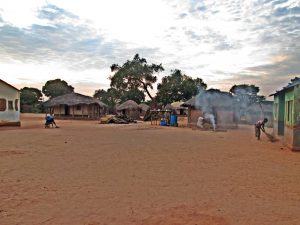
Also, the surrounding communities are likely to benefit from the new borehole because of a favorable distance and improved pumping technology.
Fundraising Target
$2,700
Funds raised in excess of the project amount will be allocated to other projects in the country.
Donations Collected to Date
$270
ADOPT THIS PROJECT BY CONTRIBUTING THE DOLLAR AMOUNT OF THE PROJECT
Donations of any amount will be appreciated. The full amount will give you “naming rights” if that is something you would like.
Dollar Amount Needed
$2,430
This project has been completed. To read about the conclusion, CLICK HERE. We are still requesting donations.
